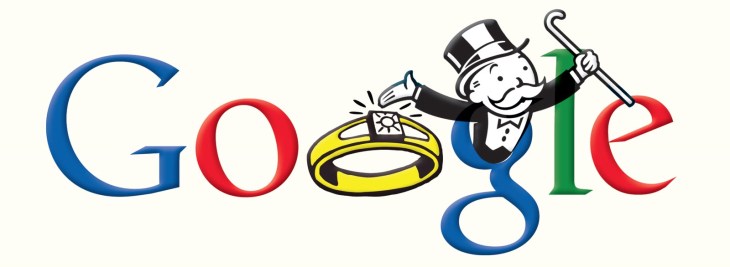Google was cleared of anti-competitive accusations yesterday by the Federal Trade Commission, but a long-forgotten interview with Chairman Eric Schmidt reveals that the search giant may be on an inevitable road to monopoly anyways.
Microsoft and critics allege that when Google prominently displays its own predicted best answers above all search results, it unfairly favors its own services above other niche search engines, like travel and shopping websites. But, as Schmidt told Charlie Rose in 2005, Google searches do yield one perfect result:
When you use Google, do you get more than one answer? Of course you do. Well, that’s a bug. We have more bugs per second in the world. We should be able to give you the right answer just once. We should know what you meant. You should look for information. We should get it exactly right and we should give it to you in your language and we should never be wrong. That’s our challenge.
In other words, Google’s hyper-perfectionist ambitions are unlikely to leave much room for competitors. Today, the perfect search isn’t possible and highlighting good results doesn’t exclude competitors. Indeed, the FTC agreed, saying that favoring its own search results “could be plausibly justified as innovations that improved Google’s product and the experience of its users. It therefore has chosen to close the investigation.”
The rapid pace of computing genius is forcing us to test long-debated notions of the truth, choice, and the value of diversity. As consumers offload more decisions to computers, or as computers come to know more about us than we know about ourselves, the value of competition is diminished. This is not unique to Google, though it may be the lucky winner of a new form of monopoly by virtue of being first.
Read more in my Washington Post piece here and see a clip of the interview below:
